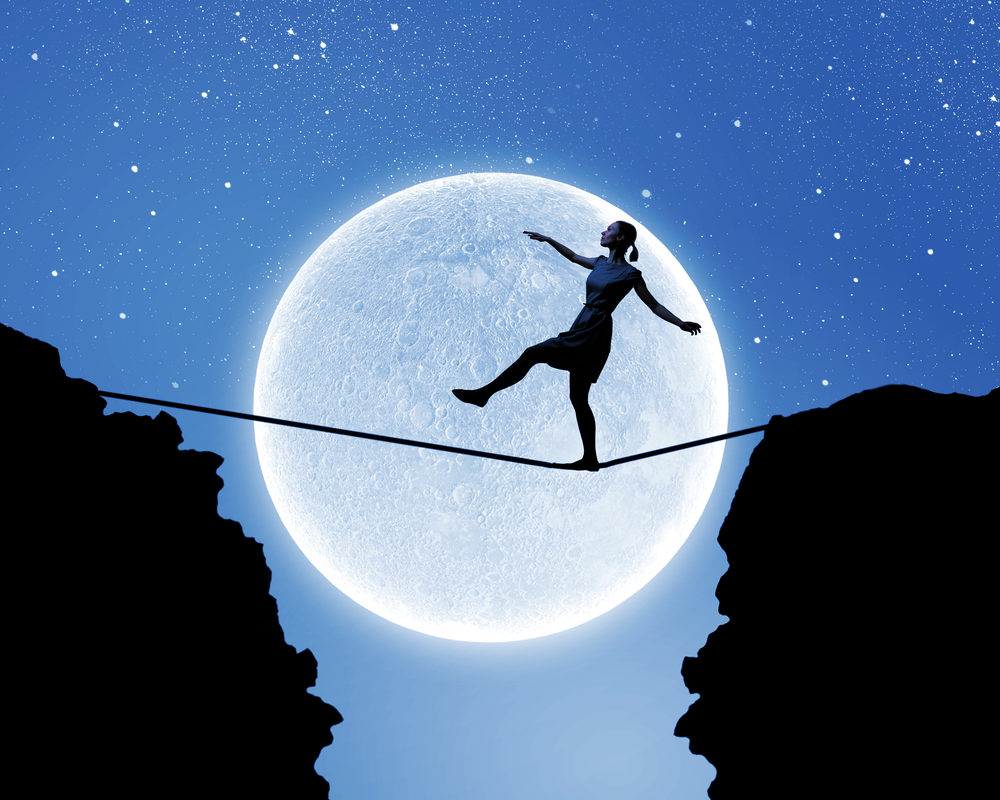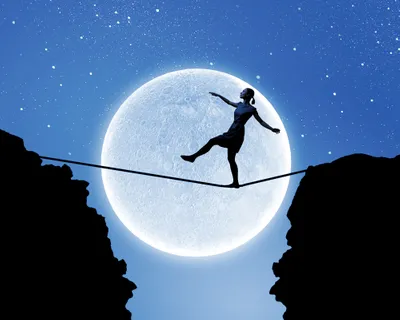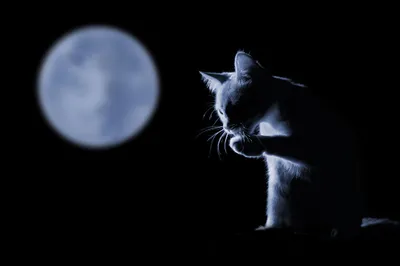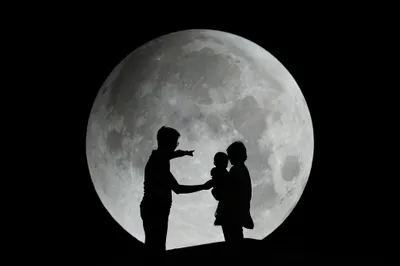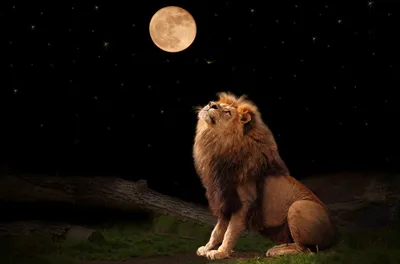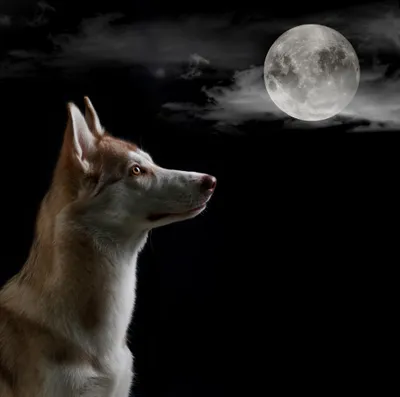How many times have you uttered the phrase, “It must be a full moon,” to explain the bizarre behavior of friends, family members, strangers, and even your pet? I don’t have to point out that the Greek word “Luna” is, after all, a prefix of the word “lunatic.”
Last night, while taking in the lovely waning gibbous moon (a moon that is one-half, but less than three-fourths along its orbit) I was contemplating the urban legend that claims that the moon can, in fact, influence humans and other animals in crazy ways. Although much of the research is contradictory on this topic, it’s entertaining to look at the scientific studies that point to phases within the lunar cycle and their mysterious powers on the body, mood, and behaviour of mammals…
1. The Lunar Cycle and Sleep Cycle
The cow might have jumped over the moon in the popular nursery rhyme, Hey Diddle Diddle, however, a study published in the Current Biology journal claims that’s probably because the circalunar cycle was keeping him awake at night! The study monitored the sleep habits of 33 individuals, over a period of 30-days that slumbered organically in a sleep lab void of exterior lights or clocks or outside light. Findings showed that 4-days prior and following a full moon, study participants took an average of 5-minutes longer to fall asleep, and slept 30-percent less soundly due to producing decreased levels of melatonin (a sleep-inducing hormone).
2. Full Moon and Pet Injuries
A full moon is a time of mischief and free-spiritedness according to many urban myths. However, a study conducted by the Journal of the Veterinary Medical Center at Colorado State University and published by the American Veterinary Medical Association, found that emergency room visits for pets increased during or approaching a full moon. The study found a 23-percent rise in emergency veterinary cat visits and a 28-percent rise in emergency vet dog visits during a full moon. Unfortunately, researchers couldn’t pin down an exact cause—other than the fact that pets tend to spend longer amounts of time outside at night when there’s more light due to a full moon.
3. The Moon’s Influence on Birth Rates
If you were born when the moon was in close proximity to the earth, Japanese researchers aren’t surprised. The findings, published by the U.S. National Institutes of Health, noted an increase in birth rates (without the use of induction agents) at a private midwife hospital in Kyoto, Japan when the gravitation of the moon was 31.5 N or lower, when the gravitational pull is at its most powerful.
4. Lion Behaviour After a Full Moon
If one of your biggest phobias is a lion attack, your fears may be rational (if you reside in Africa). A 2011 PloS ONE study reported an increase in human attacks and kills by African lions in the 5-day period following a full moon. Researchers speculate that there is good reason—during the bright nights leading up to a full moon, lions have more difficulty catching and killing prey. However, right after a full moon, nights are darker, meaning humans are less vigilant for ravenous lions.
5. Surgery Success During a Full Moon
Oftentimes, we don’t have the luxury of scheduling emergency surgeries. However, if you’re booked in for a type of emergency cardiac surgery, known as Acute Aortic Dissection Repair, you may want to put that X on your calendar during a full moon. A research study printed in the Interactive Cardiovascular and Thoracic Surgery journal, found that patients in surgery during a full moon stayed an average of 4 days less and were less likely to die in hospital compared to those with surgeries booked on other dates along the lunar cycle.
6. Ouch: The Moon Bites!
My cat, Gus, is pretty much always grouchy, he always has been and it’s part of his undeniable charm. However, I’ve noticed a relationship between the full moon and the severity of his grouchiness. It seems that researchers at the Bradford Royal Infirmary, in England, investigating 2-years-worth of medical records may have found an explanation—there is a higher rate of humans admitted to hospitals with animal bites during a full moon. Researchers speculate that dogs, cats, horses, and rats are more agitated during a full moon because there is also an increased correlation in flea and mite feeding during this time period.
7. Lunar Cycle Synchronizes Menstruation
If you’re a woman whose still in menstruates, you’re aware of the myth of “synching up” (the idea that groups of women who live or work together will tend to menstruate during the same time period). However, a research study published in the journal, Acta Obstetricia et Gynecologica Scandinavica, monitored the menstrual cycles of a group of 826 females between the ages of 16- to 25-years old. Not only did they note a similarity in the time duration (the average menstrual cycles lasts 28-days and the average lunar phase lasts 29-days), but the larges grouping of women (roughly 30-percent) menstruated during the full moon.
